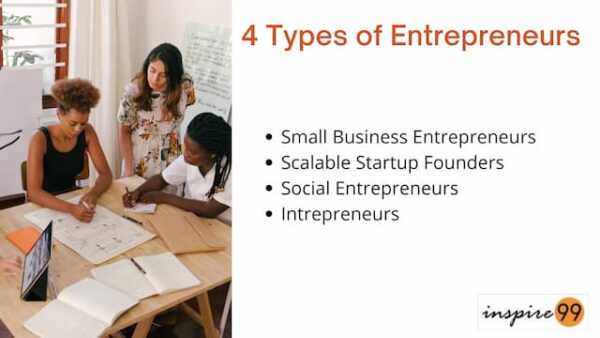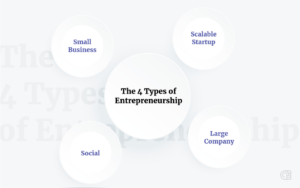Business mediation in practice: squabbles about a contract, How does mediation work in a business conflict? And why is it more effective and faster than court proceedings? The answer to those questions lies in the top 3 causes of conflict; clashing egos, miscommunication and mistrust. What stands out? Exactly, the content of a conflict is not listed! And what exactly is the job of a judge? Make a decision about the content of the conflict. It is therefore not surprising that parties are often still not satisfied after a verdict by the court. Mediation works differently. In mediation, the mediator guides the communication and negotiation process in order to reach a solution to the conflict.
Unlike in proceedings, this is less about the content in the first instance. The mediator creates a situation in which the parties can work together to resolve the conflict. For this it is often necessary to first consider the situation as it was, is and ideally would be. If parties talk and negotiate about this in a constructive manner, it often turns out that they can also come up with creative solutions to the conflict. And often the relationship remains good! Nice that theory, but how does this work in practice? In a series of blogs I will take you through a number of practical examples. In this episode I discuss a mediation about (the explanation of) a contract.
Practical example: mediation about a contract
An international clothing company has been doing business with a clothing supplier for years. Things have not been going so well in the last period; deliveries are late, incomplete and the quality of the clothing is variable. The clothing company is calling. If the supplier does not improve quickly, the company will terminate the contract. If they continue in this way, the company will face consumer complaints and reputational damage. The clothing company therefore believes that there are sufficient grounds to terminate the contract. Termination of the contract would be a pity; parties have been doing good business for years and the flexibility of this supplier is unique. Where else can you have your own designs produced within such a short period of time?
The supplier takes the position that the clothing company’s objections are largely unjustified. In addition, according to the supplier, the contract cannot be terminated on the grounds stated. The supplier also finds the clothing company’s approach extremely unsympathetic. The supplier has been complying with the craziest wishes of the company for years, so some leniency can also be shown the other way around. Finally, the owner of the supplier is disappointed that this matter is taking up a lot of his time.
De mediation
During the mediation, things go hard against hard. The clothing company has deep pockets and makes that clear right away: litigation is no problem. The supplier refers to the exclusivity and penalty clause in the contract. The parties are miles apart on the interpretation of the grounds for termination in the contract. Now that years of litigation on these types of subjects are no exception, litigation would be annoying for both parties’ business operations. Can you do business with another party or not? Do you forfeit fines or not? Should you scale production or not? Etc.
The mediator asks how the parties started the collaboration, how the collaboration went well when it was still good and where the first difficulties arose. While talking, it turns out that the problems arose after the appointment of the current operational director of the supplier. The smooth style of the operational director does not fit well with the traditions of the clothing company, which stands for quality and sustainability.
Temporary Inconvenience
Business mediation in practice: squabbles about a contract, The operational director of the supplier is young and wants to achieve results quickly. To achieve this, he is experimenting with new sub-suppliers and transporters. This does not always work right away. The owner of the supplier is confident that this will improve quickly. The owner of the supplier is also happy that he can go on holiday now and then due to the arrival of the operational director.
The clothing company indicates that it only wants to work with suppliers that match its core values of quality and sustainability. Concessions in that area are non-negotiable. On the other hand, it understands that the owner of the supplier can no longer run the business alone. There is also understanding for changes in suppliers or carriers and the associated temporary inconvenience, as long as this remains limited in time and scope.
The solution to the conflict
The parties agree to identify the bottlenecks together with the operational director. Subsequently, the supplier will draw up an action plan to resolve those bottlenecks within a reasonable period of time. During that period, the mediation will be kept open. The parties agree to return to the mediation table if the bottlenecks are not resolved in time or to everyone’s satisfaction. They will do this once more during the agreed term; the conversation is about the explanation of the contract provision ‘quality’. Ultimately, the parties also agree on that point and the mediation can be terminated. The parties, and the operational director, are still working together satisfactorily. The classic example of mediation; conflict resolved, relationship preserved!
Mediation benefits
For the benefits of mediation in a business conflict, also read one of my earlier blogs. Summarized:
- You decide for yourself which solution will be used.
- The costs are low.
- The process was completed very quickly, approximately 3 weeks is usual (approximately 3 conversations of 2 hours).
- You have a success rate of 80 to 90% to arrive at a solution.
- You can stop at any time.
- Mediation is confidential.
Questions?
Business mediation in practice: squabbles about a contract, Do you have questions about the possibilities of mediation? Then contact us without obligation. The mediators of HJ Advocaten & Mediators are specialized in business mediations and work in accordance with the rules of the Dutch Mediators Federation (MfN).








